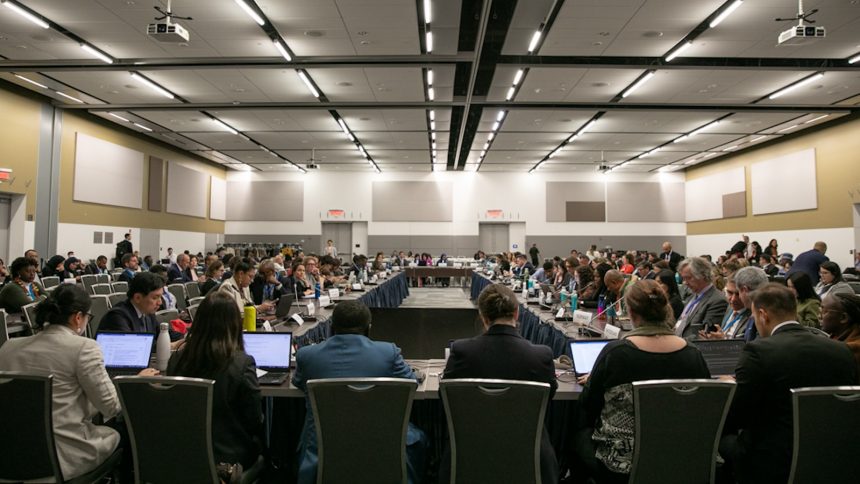The fourth round of formal discussions over the United Nations’ global plastics treaty concluded early on Tuesday morning with negotiators making significant progress towards a final agreement to “end plastic pollution.” Delegates focused on streamlining the lengthy draft text and established a formal agenda for upcoming work sessions leading up to the final meeting in Busan, South Korea. Key issues such as funding provisions and restrictions on plastic-related chemicals were addressed, but the debate on limiting plastic production remains unresolved.
Despite environmental advocates pushing for a comprehensive treaty addressing the “full life cycle” of plastics, including limits on production, the current text still lacks specific language on this matter. The production of over 400 million metric tons of plastic annually poses a significant threat to the environment and climate, with projections indicating a substantial increase in the coming decades.
While industry influence and opposition continue to impede progress on production limits, there is growing support for addressing this issue within the treaty. Calls for reducing plastic production by 40% below 2025 levels by 2040 have gained traction among several countries. However, major oil-producing states and industry lobbying groups remain resistant to such measures, emphasizing the benefits of plastics for society.
Despite the challenges, negotiators have made strides in refining the treaty text and focusing on health-related aspects, such as restricting hazardous plastic chemicals. Establishing expert groups to address these issues during intersessional work is a step in the right direction. Funding mechanisms and the distribution of resources to assist developing countries in transitioning away from single-use plastics are also key considerations moving forward.
As countries work towards finalizing the treaty by the end of the year, the outcome remains uncertain. While ambitious provisions are still on the table for discussion, the focus on regulating chemicals and exploring financing options shows promise for combating plastic pollution. With dedicated efforts and collaboration, there is hope for a meaningful global plastics treaty that addresses the pressing challenges posed by plastic production and waste.





